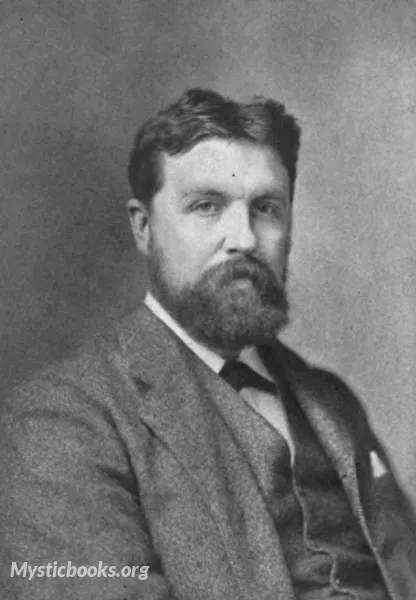
Timeline
Title
Country/Nationality
S. R. Crockett
In the realm of Scottish literature, Samuel Rutherford Crockett stands as a towering figure, a novelist whose captivating tales of adventure, romance, and historical intrigue captivated readers worldwide. Born on September 24, 1859, in Balmaghie, Kirkcudbrightshire, Scotland, Crockett's life was deeply intertwined with the rich tapestry of Scottish culture and folklore.
Literary Prowess and Kailyard School Influence
Crockett's literary journey began in earnest during his studies at the University of Edinburgh, where he immersed himself in the world of literature and storytelling. His first major success came with the play "The Lickpenny Lover" (1894), which established him as a promising playwright.
Crockett's true calling, however, lay in the realm of the novel. His breakthrough came with "The Raiders" (1894), a historical romance set during the Covenanter period in Scotland. The novel's blend of action, adventure, and historical authenticity resonated with readers, catapulting Crockett into the limelight.
Crockett's literary style was heavily influenced by the Kailyard School, a movement that sought to depict the idyllic and sentimental aspects of rural Scottish life. His novels were infused with vivid descriptions of the Scottish landscape, warm portrayals of rural communities, and a deep appreciation for Scottish traditions and folklore.
Notable Works and Literary Legacy
Crockett's prolific writing career produced a remarkable collection of novels, including "The Lilac Sun-bonnet" (1894), "Sweetheart Travellers" (1895), and "The Grey Man" (1896). His works were translated into numerous languages and enjoyed immense popularity throughout the late 19th and early 20th centuries.
Crockett's literary legacy extends beyond his captivating storytelling. He was a master of language, his prose infused with a poetic sensibility that brought his characters and settings to life. His novels captured the essence of Scottish identity, preserving the rich tapestry of Scottish culture and folklore for generations to come.
Philosophy and Principles
Crockett's writing was deeply rooted in his personal philosophy, which reflected a deep appreciation for Scottish history, culture, and traditions. He was a staunch defender of Scottish identity, and his novels often explored themes of national pride, religious faith, and the enduring spirit of the Scottish people.
Crockett's strong moral compass and unwavering belief in the power of storytelling shaped his approach to writing. He believed that literature had the potential to educate, inspire, and uplift readers, and his novels were infused with a sense of optimism and hope.
Legacy and Remembrance
Samuel Rutherford Crockett passed away on April 16, 1914, leaving behind a literary legacy that continues to resonate with readers worldwide. His novels remain cherished for their captivating storylines, vivid portrayals of Scottish life, and enduring exploration of Scottish identity.
Crockett's impact on Scottish literature is undeniable. He was a pioneer of the Kailyard School, and his works played a significant role in preserving and celebrating Scottish culture and traditions. His novels continue to be enjoyed by readers of all ages, offering a captivating glimpse into the heart of Scotland.
Interesting Facts about Samuel Rutherford Crockett
- Crockett was an avid traveler and explorer, visiting numerous countries around the world, including the United States, Canada, and the Middle East.
- Crockett was a keen collector of Scottish artifacts and folklore, and he amassed a significant collection of books, paintings, and manuscripts.
- Crockett was a passionate advocate for social justice, and he spoke out against poverty, inequality, and social injustice.
Books by S. R. Crockett

The Grey Man
In the tranquil village of Balweary, nestled amidst the rolling hills of Scotland, an air of unease settles as a mysterious stranger, known only as The Grey Man, arrives under the cover of darkness. His enigmatic presence stirs whispers and suspicion...